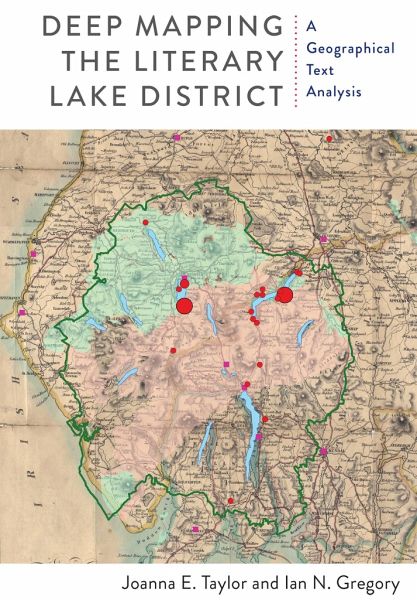
Deep Mapping the Literary Lake District
A Geographical Text Analysis

PAYBACK Punkte
25 °P sammeln!
Deep Mapping the Literary Lake District pioneers, implements, and critiques a new approach to literary analysis in the digital age. Focusing on a corpus of writing about the English Lake District from 1622-1900, this study exemplifies how geospatial tools can enhance our appreciation of the literary geographies that condition the way we perceive and respond to landscapes.



